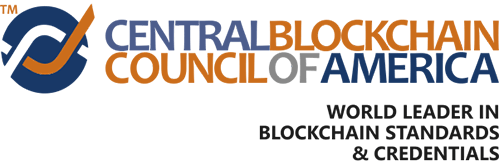Dec 26, 2018
The fintech revolution is probably the biggest phenomenon to hit economies across the planet since the advent of the third industrial revolution. As the blockchain mania grips the world’s financial institutions, banking and payments systems will never be the same again.
As with any prejudice, unnecessary bias has come to define popular perception. Ponder on that for a moment, and equate it with the layman’s understanding that blockchain is all about bitcoin, investment volatility (read gambling), money laundering and buying prohibited goods off the internet. You’ll know exactly where we’re coming from. Nothing could be farther from the truth, and if the Big Finance’s investments in blockchain technology development are anything to go by, the potential of this promising technology and its impact on the worldwide banking systems are nothing short of a quiet, but sweeping, revolution.
The cogs maketh the machine. So, before delving into the broad range of opportunities that this new technology will unravel, as it steadily consolidates into a multi-billion dollar industry worldwide, it’s important to have a clear knowledge of the machinations of blockchain in the most impacted banking functions.
Reconciliation – An encrypted, distributed ledger that resides in a secure peer-to-peer network and automatically updates itself in real-time may be every banker’s dream come true. With the implementation of blockchain technology Industry gurus predict an astonishing 95% accuracy rate in bank reconciliations.
Customer Tracking and Credit Management – Indelible transaction records and decentralized storage of information will certainly translate into a single, consolidated and detailed profile of a customer that cannot be tampered with, even by employees. Combine these with advanced analytics capabilities and rigid, proven risk management models and you have a whole new level of instant and accurate credit analytics, customer profiling and customer service. KYC redefined.
Payments and Trade Processing – International payments, transfer pricing, trade settlements, bank guarantees, letter of credit verifications, and a whole host of global trade and banking transaction classes; what if they become transparent, simplified and secure? Blockchain makes this a reality and is probably a godsend for customers in the international business and remittances industry; not just in terms of exponential increases in efficiency, but also in adding value to the customer experience, which was hitherto a gray area for micro and small businesses engaged in global trade.
And by far the most obvious and compelling case of all
Security – When a technology is invented by a group of people who are data privacy activists and cryptography experts and advocates, you can be rest assured they have all the checks and balances in place to make the tech impregnable. Blockchain traces its roots to the cypherpunk movement of the ‘90s (and you thought it started with bitcoin?). The overall security that a private blockchain, which is largely expected to be the case with enterprise resource planning driven banking systems, has is virtually invincible. The premise of an encrypted and distributed database running in a secure, peer to peer network, where each chunk is encrypted, is several cuts above even the most advanced and secure corporate databases of today. Think of it like this, without a central database to hack, what will the hackers go after, anyway? Data breaches will certainly be a thing of the past.
While the objectives, functions and potential of blockchain in banking and payments systems are undisputed, what is perhaps more interesting to the career aspirants is the fact that the biggest banks investing in blockchain today include marquee names like American Express, Mizuho Financial of Japan, MetLife, Prudential Financial, Goldman Sachs and Morgan Stanley. These institutions comprise less than half of the total investments being made in banking and payments through blockchain, others include Amazon and Facebook. It’s probably difficult to find bigger names in the world of employment, and the industry value projections add the reinforcement needed – blockchain is expected to be a $10.58 billion consolidated industry within 5 years. Time for the early movers to step up and the serious aspirants to step in.








